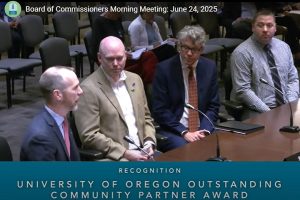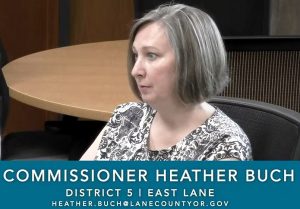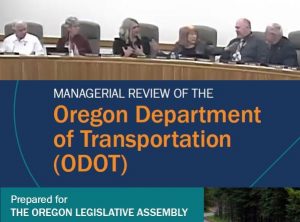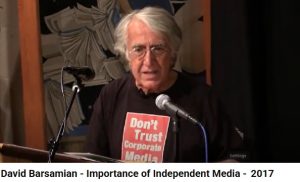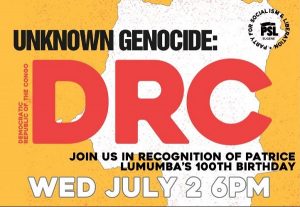Ask Lisa Loving your questions about street journalism
5 min read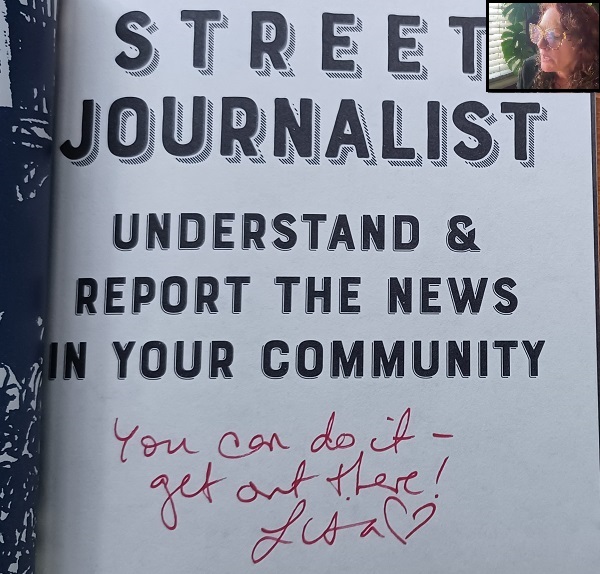
From Pacifica Radio, free training for community reporters. Speaking on behalf of the co-sponsors:
[00:00:07] Rev. Joan Ross: Rev. Joan Ross, I’m the station manager for WNUC in Detroit, Michigan, and I’m the chairman of the board for the Association of Affiliates, who are one of the sponsors for this. It is certainly our honor to co-sponsor this event and bring Lisa. We love Lisa. I think she’s got a wealth of information for us to learn from.
[00:00:30] John Q: Lisa Loving from KBOO in Portland, is presenting. KEPW is eligible to attend the training, and because we’re a community radio station, you’re welcome to join us. We’ll pass along your questions, or you can reach Lisa on social media:
[00:00:45] Lisa Loving: if you’re ever out there, you’re covering something and you’re lost or you’re confused or you want someone to bounce an idea off of, you know, my name is Lisa Loving and I am on all kinds of social media. Please feel free to just reach out. All right. I never get tired of collaborating with real people doing important things, right?
[00:01:07] John Q: Lisa’s book is: ‘Street Journalist, Understand and Report the News in Your Community.’ On the title page, Lisa has written: ‘You can do it, get out there.’
[00:01:16] Classes are live 11 to noon on Wednesdays and Thursdays through July 24, then available on demand. Excerpts from the first session, on June 13:
[00:01:25] Lisa Loving: I’ve been a journalist since I was 14, and I am now 61 years old, not an inconsiderable age, but it’s my belief that everyday people can be some of the best reporters around. Everyday people have a knowledge and a depth of our local communities that perhaps someone with a master’s degree doesn’t have. You guys rock. And you’re incredibly powerful. Incredibly.
[00:01:49] And I just, if nothing else, through this series of workshops, I want you to understand how powerful you are and how necessary your work is here. It may not always be pretty and it might really stress you out. (It will hella stress you out, I’m not kidding.) But what you’re doing here supports whatever small amounts of democracy we have in this country. And I don’t want to be cynical. The problem with democracy in America is that some people have all of it and other people don’t have any. So, that’s what we’re here to talk about.
[00:02:20] So, the first thing I want to say is: Be autodidactic. I know, what a tiresome word, right? But it just means always be able to teach yourself things that you need to know. Never expect that anyone is ever going to serve you the knowledge you need. Always be autodidactic. Never give that up.
[00:02:41] Whatever our society has five years from now, 10 years from now, whatever our communities have in terms of information, infrastructure, or even knowledge about who we are, it’s going to be something that you made. You guys. Whatever we have in the future is going to be something you make.
[00:03:02] So, I want you to be here with your thoughts and your ideas. And if you have any kind of problem, I’m Lisa Loving. Just look me up on social media. I would love to figure it out.
[00:03:10] John Q: The first class looked at the biggest news story of the year, the 2024 elections.
[00:03:17] Lisa Loving: What is the goal? What’s the goal of election reporting?… As a grassroots community journalist: not just making sure that the democracy works, but also critiquing it.
[00:03:27] I want you to keep a running list in the back of your head, who can vote and who can’t and why, right? Who can vote and who can’t, and how does that impact them and us.
[00:03:38] In your local community, that won’t even always necessarily be the same groups of people. But to me, and this is just my personal values, but if everybody cannot vote, then personally, I don’t personally see it as democracy.
[00:03:51] But I want you to think about who are the people who are voting, why are they here, what do they need, and what’s going to happen next.
[00:04:01] I want you to think about all the voters and the people who can’t vote. Really, I wish I could see more people doing coverage of people who can’t vote, because all of this becomes part of the mix.
[00:04:12] For the purposes of us, we, grassroots journalists, I always want you to look around in the room and imagine who’s not there. That’s just me asking you that.
[00:04:25] I’m going to also challenge you not to make your entire election coverage about Donald Trump, right? And as I say that, I mean, this guy is, as far as we know, the only super rich former president that ever openly tried to stage a failed coup d’etat right in front of us.
[00:04:43] John Q: She suggested conducting local research.
[00:04:46] Lisa Loving: I just really want you to stop and think about the history, the electoral history of where you live. Whoever you get that information from is going to make a difference too. I want to strongly encourage you to go find some old person and ask them about it.
[00:05:00] And I also have some homework for you. Write it down. I’m just kidding. (Probably write it down.) I want to give you guys some homework. Use a three-point search to look up any newsworthy stories about your regional electoral system over the past five years. A three-point search. A three-point, sometimes it’s a five-point web search is when you take your search engine, you plug in, you know, what you want to know, and you literally just examine the first three or five results, because that’s a quick search.
[00:05:31] John Q: From WNUC in Detroit, Rev. Joan introduces Pacifica Board Member Kaja Brown, from Desert Soul Media. Kaja helped establish KRDP, the second and currently the only African American controlled FCC licensee in Arizona history.
[00:05:47] Rev. Joan Ross: I want to just make sure that everybody knows Kaja Brown, who’s on this Zoom with us today. And Kaja is actually your representative on the Pacifica board. So, in case you didn’t know who you have in connection to Pacifica, Kaja is there.
[00:06:05] And Joseph Orozco is actually my vice chair for the association of affiliates. Joseph, yep, wave your hand. Kaja, wave your hand too, man, I know you out there in Arizona. So certainly reach out to us, as your group that carries into Pacifica information. But we hope to be at GRC 2 (Grassroots Radio Conference) this year and meet and greet everybody.
[00:06:29] John Q: To attend the course live, or watch online, contact us at KEPW 97.3, streaming online at KEPW.org. Lisa Loving’s book ‘Street Journalist’ is available from Microcosm Publishing in Portland, at Microcosm.pub.
